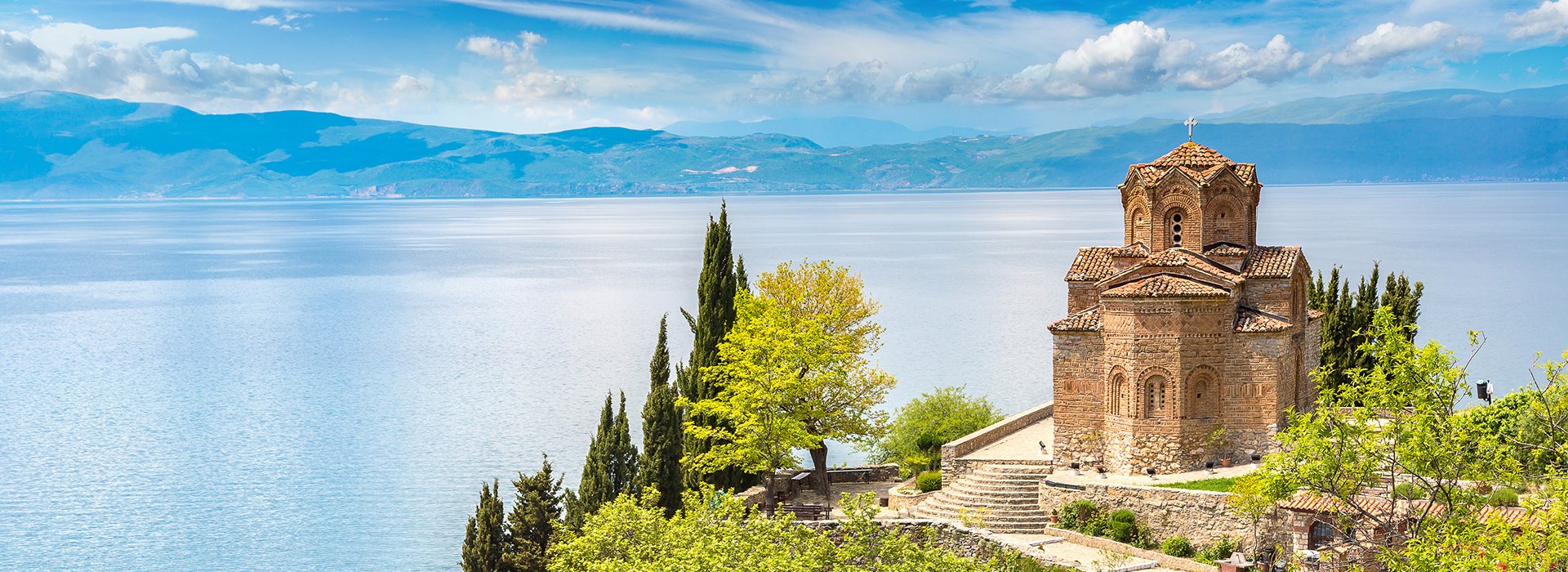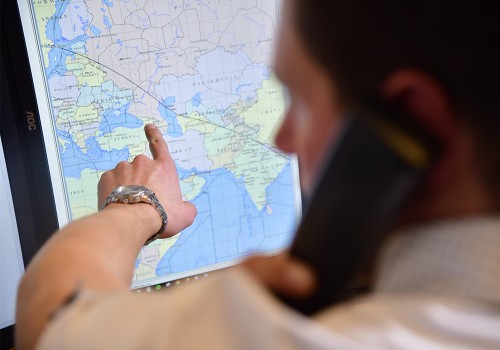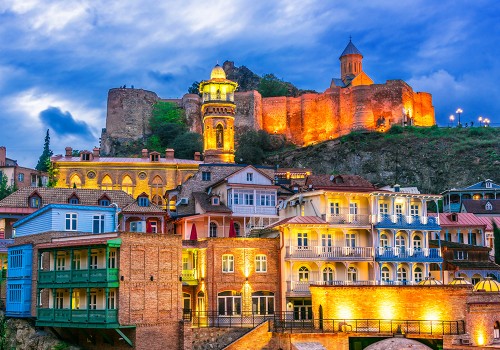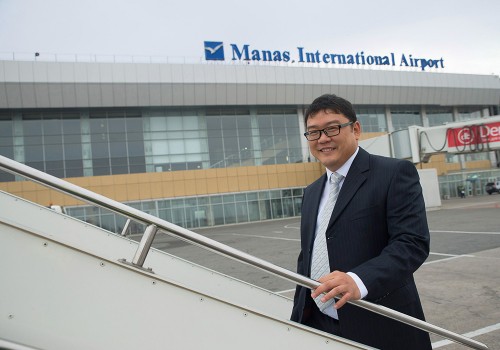On the Ramp in Skopje with Robert Micevski
Getting to know Robert Micevski, Euro Jet’s Country Manager for North Macedonia and his remarkable aviation career is just as exciting as learning about this beautiful country full of natural and cultural wonders. Recently renamed North Macedonia as part of the process to joining the European Union, this Balkan gem will pleasantly surprise you in every way. Robert takes us on a tour of the main airports of Skopje and Ohrid while introducing us to the country’s must-see attractions. He also discusses his work as part of our Euro Jet Quality Control team which has been invaluable based on his years of experience. In addition to all this, we also explore the local business aviation setup and how we can best assist our customers with their flights.
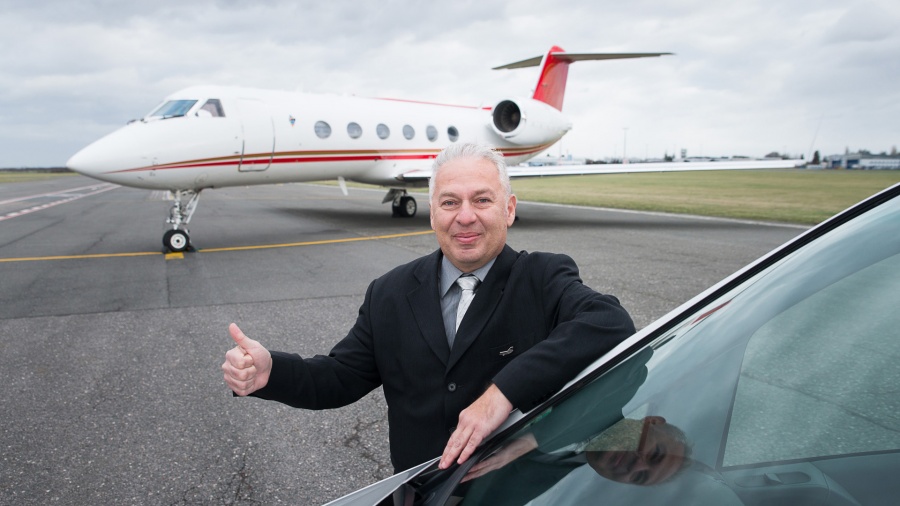
Robert, you have been working in the aviation industry for a very long time. Can you tell us more about this journey you have been on?
I can tell you exactly when I first got into aviation. It was April 1, 1991, when I got a job as a Station Manager at Skopje airport with the then newly established Palair Macedonian Airlines. Later I worked for the MAT Macedonian Airlines and finally I was employed by Sky Wings Air Lift Service. I held many positions during all those years; I was the Ground Operations Manager but also the Emergency Manager.
To be able to work at these positions I had to receive special training. To further my education has always been important to me. I have a certification in IATA Emergency and Response Management, and I also hold an IATA Diploma in Airline Operations covering all ground handling operations. I also became an IATA Certified Instructor and trained the staff of Macedonian airlines at Skopje airport.
Eventually I met Euro Jet’s Country Manager for Croatia, Davor Brixy, who participated in hiring me all those years ago, and that is when my Euro Jet journey began.
You have been a part of Euro Jet basically since its very beginnings. How has the company changed since then?
I started working for Euro Jet almost 15 years ago, so I am one of the oldest serving Euro Jet Country representatives.
I think the major focus has always been on the improvement of the quality and safety of our work. I have participated in creating our Ground Handling Manual as well as our Quality Manual. Each employee working on the ramp goes through a thorough training in Euro Jet’s Prague headquarters. Together with the NATA Safety 1st trainings, not only has the expertise of the ground staff been improved, but also the customer service.
Euro Jet’s continuous expansion of its core regions as well as the ever-increasing traffic in our non-core regions has transformed us into a truly global flight support player. Moreover, the amount of regularly updated airport data available in our database, which we use for emergency landings around the globe and which I also took part in creating, is one of the best in the world.
A lot of work needs to happen before an aircraft lands or takes off – from allocating the slots to arranging all services requested. I have been involved in both sides of this work – the pre-flight arrangements and the on-ramp support. Improvements in our software have led to a more efficient processing of flight requests and communicating it to the people on-the-ground.
The positive feedback from customers confirms that all this effort is worth it. I am proud to tell each crew arriving to Skopje that they can expect the same level of premium service they receive at this airport at any other airport in Euro Jet’s core region.
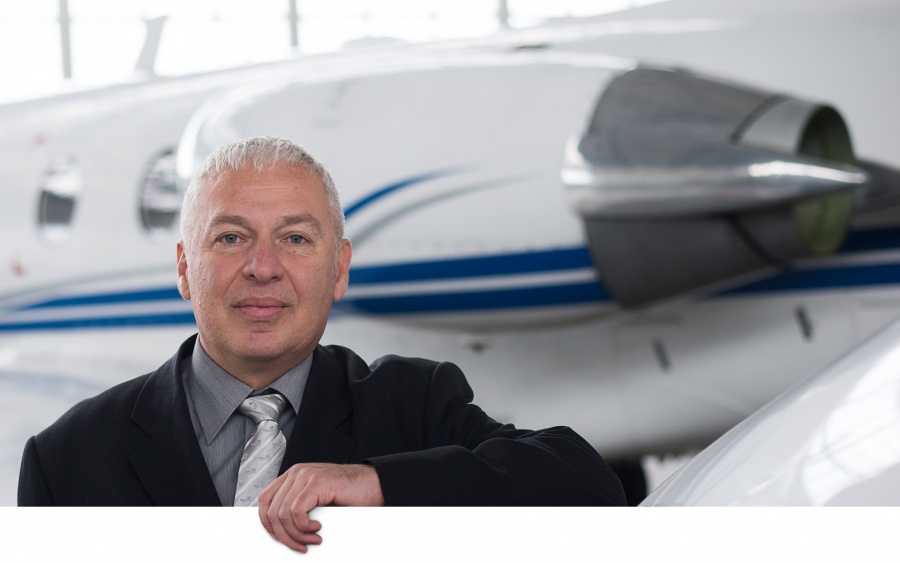
Let’s focus on the business aviation setup in North Macedonia. Can you tell us about the main airports? What are the local specificities?
There are two airports, one in Skopje and the other in Ohrid. Skopje is the capital with the most important airport; Ohrid is located in the south of the country with a much smaller airport.
Prior to covid, they were both quite busy, with Skopje having welcomed over 2.5 million passengers a year. Today the traffic is slowly increasing back to those levels.
There is a new main terminal in Skopje with six jet ways for all flights. General aviation aircraft are parked on an apron near the no-longer used old terminal, where a VIP lounge is located in a separate building with its own arrival and departure entrances. There is also another VIP lounge in the main terminal, but then one has to pass through immigration with the commercial aviation traffic. No matter which building is used for immigration, all passengers and crew are transported in vans because of the long distances between the terminal and aircraft positions.
Ohrid, on the other hand, has only one terminal and just two gates. There is a VIP lounge with immigration just opposite the main terminal. No transportation is needed from the aircraft positions to the terminal as everything is a short walking distance.
Both airports can provide any ground service needed, including deicing.
What kind of clients do you mostly service in Skopje and Ohrid? Do people fly in for tourism, business, or perhaps some big events?
It is a mixture, really. Most often, we support flights of private individuals flying in Skopje to attend to their investment interests. There are also diplomatic flights, ambulance flights as well as military traffic now that we are a NATO member. There is a military training facility in the country’s central part called Krivolak which is said to be the best in Europe as it can simulate a desert climate.
We receive general aviation traffic related to special events once in a while. The last big one was the UEFA Super Cup in 2017 when Manchester United played against Real Madrid in Skopje. I supported 36 flights in just four days for this event.
While Ohrid is the main tourist region, it does not attract private jet tourism due to its lack of infrastructure, such as five-star hotel accommodation. It mostly welcomes diplomatic, business or smaller special-event related flights.
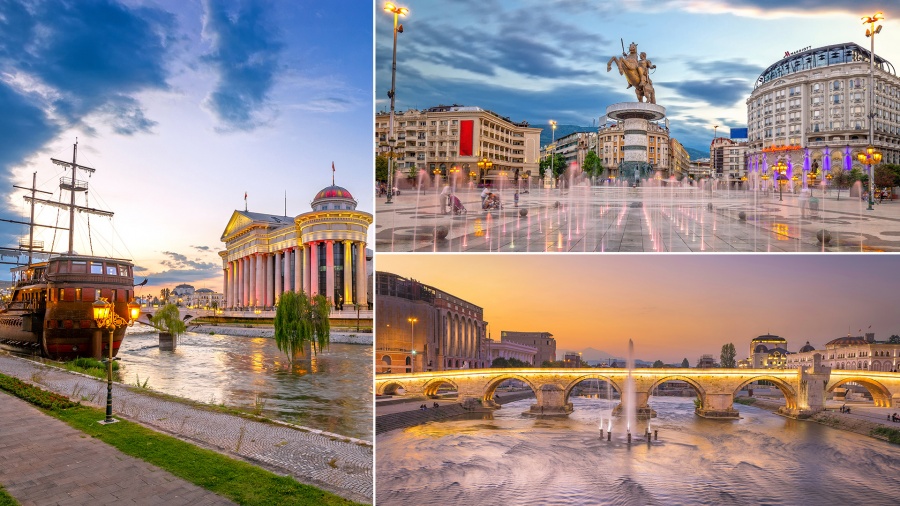
If crews are staying in North Macedonia for a bit longer time, what do you recommend them to do and see?
In Skopje, there are several monuments and beautiful bridges worth visiting. There is also the Skopje Fortress or the Turkish quarter, a remnant from the Ottoman Empire. The overall look of Skopje architecture was deeply affected by the 1963 earthquake and the subsequent rebuilding, which occurred in the brutalist style during the socialist era. However, in the last decade, Skopje’s look improved thanks to modern architecture.
If you are staying a bit longer, go see the Lake Ohrid, its beaches and ancient culture. The Cyrillic alphabet was developed in the 9th–10th century by Saint Clement of Ohrid. We also say there is a church or a monastery in Ohrid for almost every day of the year – there are nearly 300 hundred of them. And the nature is wonderful: there are 260 endemic species living in this ancient tectonic lake, such as the Ohrid trout and the Ohrid eel.
I am sure you are also a good source of information on local cuisine. What is your recommendation for good food and drink?
When it comes to our traditional food, of course I know where to eat the best meals (smiles). You should either go for pljeskavica, kebab, or gravce na tavce which is a baked-bean casserole and our national specialty. In Skopje, the Bohemian Street district is full of restaurants and cafes where you can taste all our delicious treasures.
When it comes to drinks, we must not forget the famous Rakija as well as the wide range of Macedonian wines, especially the local Vranec reserve. As for local beers, I would recommend Skopsko.

Back to your position at Euro Jet. You are the company’s only representative in North Macedonia. What does your usual workday look like?
My workday keeps me quite busy! While I am based out of Skopje, I personally oversee all flights coming to Macedonia at both airports. During the pandemic, there were less flights, but the traffic has picked up again, especially thanks to our NATO membership and the related flights.
However, in addition to being the Country Manager for Macedonia, I also closely cooperate with Euro Jet’s Procurement and Legal Department. Given my certifications and expertise, I participate in the creation and maintenance of Euro Jet’s Safety and Quality Standards including Euro Jet station audits. Plus, I help review insurance policies of our vendors. As you can imagine, my days can be very busy balancing all the different responsibilities.
What is it that you like most about your work at Euro Jet? And what are the biggest challenges?
Coming to the airport, working with airplanes, that is what I enjoy the most. What I also love about working at Euro Jet is that every flight is different from the other. And that motivates me every time.
After 31 years in aviation, I consider myself very experienced (laughs). But with each flight, I gain more experience and face new challenges.
For example, a recent challenge from this May in Ohrid. Spring in full swing, winter season long over, and yet the weather surprised us as there was ice on the wings of customer’s aircraft! But we still managed to get enough deicing fluid – which is not easy in May - and our customers could take off the very same day.
So yes, the unexpected events for which I have to find solutions are the biggest challenge but also my biggest joy.
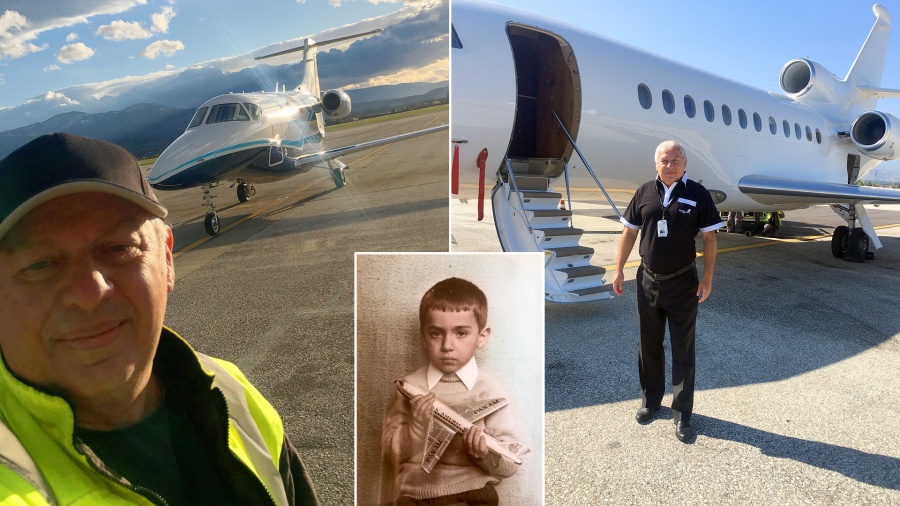
Is that what has kept you in aviation for such a long time?
Yes, exactly, that is the reason I am still in aviation. Every flight is different from the other. Going the extra mile every time and putting a part of myself into my work is what is keeping me motivated and excited about every day that I get to spend at the airport. Nobody can ever say that they know everything about ground handling in aviation. There is always something new to learn.
What, on the other hand, do you like doing when you’re not working at the airport? I heard you are a huge National Geographic fan.
Yes, I am a big fan of National Geographic magazine and have a large collection of past issues at home. Every time I travel, the one thing I always have with me is the latest issue of National Geographic.
Robert, thank you very much for sharing your story with us. To wrap up our conversation, what are your plans and hopes for the future?
Well, I am 58 years old now and supposed to retire in six years, which I will not do. I will of course continue working in this beautiful field of aviation. In a few years, I will be the oldest person at Skopje airport and maybe older than most of the airport equipment as well (laughs).
But in all seriousness, I intend to keep educating myself. When it comes to ground handling, I have achieved the instructor / supervisor level. I plan on diving deeper into the quality and audit side of my work and just continue doing a good job for Euro Jet.
